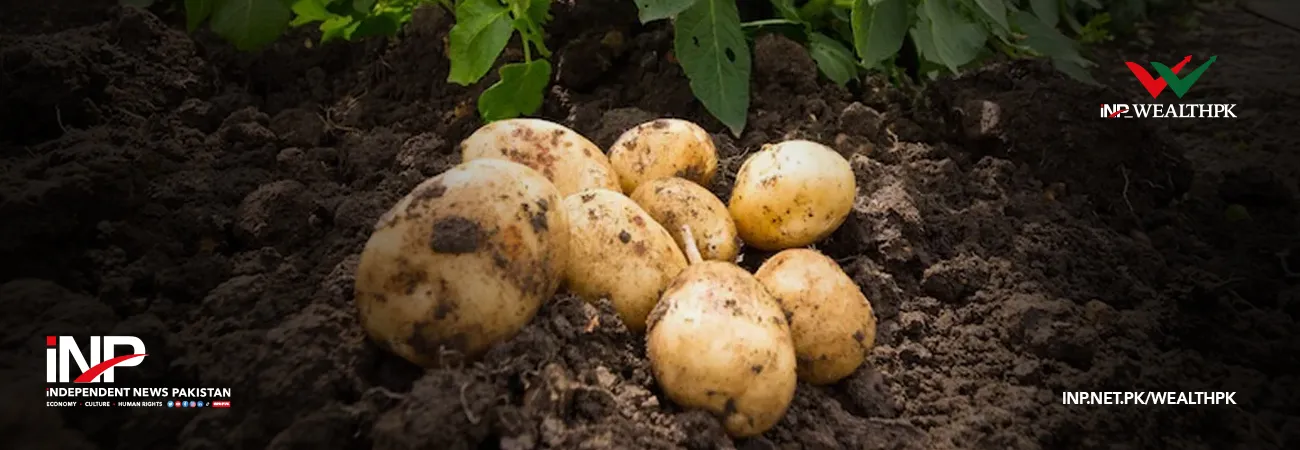INP-WealthPk
Arooj Zulfiqar
The Pakistan Agricultural Research Council (PARC) and Korea Programme on International Agriculture (KOPIA) signed a memorandum of understanding to revolutionize the agricultural practices in Pakistan. The joint programme will focus on the production of certified seed potatoes, utilizing the cutting-edge aeroponic greenhouse technology, reports WealthPK The projects include the construction of aeroponic greenhouses, seed production of oat and rye grass, and application of Korean Holstein sexed semen for artificial insemination in cattle. Dr Cho Gyoungrae, Director KOPIA-Pakistan Centre, announced the plans to build additional greenhouses under the Pakistan-Korea Joint Programme to produce 160,000 tons of certified seed potato annually. “Potato is one of the main cash crops and the main horticultural export of Pakistan. It is the fourth most significant crop in terms of output, providing for the country's domestic consumption and dietary needs,” said Dr. Muhammad Iqbal, Principal Scientific Officer at the National Agricultural Research Centre (NARC), In an interview with WealthPK, Dr Iqbal said 500,000 tonnes of potatoes were produced annually on 194,000 hectares. Potato seed production is possible for the entire year in Pakistan because of its diverse climate, he added. He said, “The potato seeds available in Pakistan are of poor quality; therefore, Pakistan imports high-quality seeds to meet its demands.”
As Pakistan strives to modernize its agriculture, international collaborations play a pivotal role in bringing in expertise, technology, and best practices, he said. “The recent collaboration between KOPIA and the Pakistan Agricultural Research Council (PARC) marks a significant stride towards advancing the agricultural practices in Pakistan. The decision to expand the joint program to produce certified potato seeds, particularly through the implementation of aeroponic greenhouses, demonstrates a commitment to leveraging the cutting-edge technology for sustainable food production. “Aeroponic greenhouse technology is a revolutionary approach to seed potato production that offers precise and efficient cultivation. The decision to construct additional greenhouses capable of producing 160,000 tons of certified seed potatoes annually demonstrates a strategic approach to addressing the nation's agricultural needs,” he added. The collaboration between Pakistan and the Republic of Korea goes beyond seed potato production.
It includes various areas of agricultural technology transfer, such as fodder production, chili drying, and advancements in artificial insemination in cattle. These projects not only focus on enhancing crop production but also underscore the importance of improving livestock breeds and reproductive technologies. Dr Iqbal strongly advocates for continual emphasis on international collaboration and stresses the need for a sustained exchange of expertise, technology, and best practices in agricultural innovation. Additionally, he said there is a need to secure and diversify financial support to ensure longevity and success of transformative projects. By integrating advanced technologies and international expertise, this collaboration sets a precedent for future initiatives that can elevate Pakistan's agriculture to new heights of productivity, sustainability, and resilience.
Credit: INP-WealthPk













